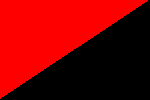During 1996 the government adopted the Growth, Employment and Redistribution plan (GEAR). This plan promotes policies which blatantly serve the needs of bosses at the expense of workers and the poor. The governments adoption of GEAR marked its commitment to "free market" policies.
WHAT IS GEAR?
GEAR is the government's strategy to promote social and economic development. It replaces the RDP. The government argues that the best way in which to "develop" South Africa is to promote "economic growth" (i.e. to increase bosses profit).
The government believes that "economic growth" will redress the legacy of Apartheid. But if one takes a close look at GEAR's policies it is clear that if government's policies will ensure that bosses get fat while the poor and working class are condemned to poverty and hunger. [see Table below for summary of what GEAR really means for the workers and the poor]
A BETTER LIFE FOR ALL
It is clear that if workers and the poor want a better life we must not accept GEAR. But Trevor Manuel has stated that GEAR's policies are non- negotiable and every one must accept it. COSATU leaders say that they will try to influence the government's economic policy by talking to their allies in the alliance. We say, we cannot wait fro negotiations and must resist GEAR now on the shopfloor. We must take up mass action and strike against the implementation of GEAR!
WE DEMAND:
* End to cut backs in health, education, welfare, pensions, housing and infrastructure.
* End to privatisation
* End to increases in Vat, trade liberalisation and high interest and bank rates.
* A Living wage and an end to wage restraint.
* End to retrenchment and unemployment. We demand more jobs.
END THE ALLIANCE.
Part of the fight against GEAR is breaking the Alliance. COSATU should end the alliance with the ANC because the ANC is committed to anti- worker policies. The Unions should also leave all policy forums such as NEDLAC because the role of unions is not to help manage capitalism, but to fight it.
FORWARD TO ANARCHO- SYNDICALISM.
The government, bosses and some union "leaders" tell us that capitalism- a system based on the exploitation of the workers and the poor- is the only solution. They tells us that socialism has failed and the only hope for workers and the poor is to fight for the best form of capitalism they can get.
This is a lie! The only form of socialism that has failed is state socialism (Marxism). There are alternatives to capitalism. There is Anarcho- Syndicalism. On a daily basis we must take up the battle against our bosses and the government to fight for better conditions and wages. At the same time, us the workers and poor must organise through our unions and communities to overthrow capitalism and the state. We must replace this present society based on greed and exploitation with stateless socialism, a society based on worker and community control and grass roots democracy.
(1) Cutting back on government spending, especially on wages and social services, and decreasing the governments debt means that
*Education and free primary health care will mean very little if hospitals and schools are over crowded, have no money, have no resources (no beds or books) and are understaffed.
*Tertiary education will become much more expensive and bursaries will be cut. Thus making it impossible for workers' families to attend university or technicon.
*Pensions will remain extremely low.
*There will be very little money for building houses for the homeless.
*The government will not contribute much towards building infrastructure (running water, roads, sanitation etc.) in the townships and rural areas.
(2) Privatisation of state assets. The privatisation of transport, telephones, electricity means that
*with the privatisation of state assets, basic services will only be provided to those who can pay (e.g. electricity).
*Many workers will lose their jobs or be forced to accept wage restraint because the bosses and the government aim to cut costs and privatise government assets.
*Workers will have to pay more for services, such as transport.
(3) Tax Rates.
* While the tax on the bosses companies and personal income will become less, it is likely that VAT will increase.
*Instead of the rich and middle classes paying higher rates of tax than the poor, the rich and poor will pay the same amount of tax. This means that workers pay a disproportionate amount of tax and will shoulder the burden of supporting the government.
(4) Dropping exchange controls and trade barriers to increase imports.
*Workers will lose their jobs or be forced to accept low wages as bosses try to make their companies more competitive with cheap imports by cutting labour costs .
(5) Government and bosses expectations from workers.
*In the name of economic growth and foreign investment the government and the bosses expect workers to agree to wage restraint (workers must not demand higher wages) and increased productivity (workers must work harder).
(6) Interest rates.
*While interest rates may drop, they will still be high compared to other countries. This will make it difficult for workers to purchase goods on credit as goods will be costly.

Email us at wsf_sa@oocities.com
 Go to the CapitolHill GeoPage
Go to the CapitolHill GeoPage